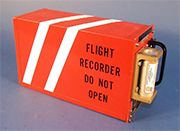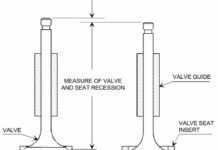 When Congress on Tuesday proposed that automakers would have to sell off their private jets as part of a bailout deal, the National Business Aviation Association was quick to respond. In a letter to House Speaker Nancy Pelosi sent late on Tuesday, NBAA President Ed Bolen expressed concern about the draft legislation, which “appears to prohibit the use of business aviation in ALL situations,” Bolen wrote, “including when it is the sole mode of transportation available to a business, or it is the most prudent and cost-effective solution to a given transportation challenge.” The $15 billion bailout deal is still undergoing intense negotiations between Congress and the White House, but pressure is high to resolve the issue quickly. Bolen argues, in essence, that the aviation sector shouldn’t be made to suffer for the errors of a few auto executives. “Business aviation is the most prudent and cost-effective transportation solution in a wide number of situations,” he wrote. “While we understand the intent of Congress to address a specific situation dealing with the auto industry, we believe that the broad wording of the provision could be misinterpreted as suggesting that Congress does not recognize the critical importance of this mode of transportation to the success of U.S. businesses facing unprecedented international competition, the economic development of small towns and rural communities, and the jobs of hundreds of thousands of U.S. workers.”
When Congress on Tuesday proposed that automakers would have to sell off their private jets as part of a bailout deal, the National Business Aviation Association was quick to respond. In a letter to House Speaker Nancy Pelosi sent late on Tuesday, NBAA President Ed Bolen expressed concern about the draft legislation, which “appears to prohibit the use of business aviation in ALL situations,” Bolen wrote, “including when it is the sole mode of transportation available to a business, or it is the most prudent and cost-effective solution to a given transportation challenge.” The $15 billion bailout deal is still undergoing intense negotiations between Congress and the White House, but pressure is high to resolve the issue quickly. Bolen argues, in essence, that the aviation sector shouldn’t be made to suffer for the errors of a few auto executives. “Business aviation is the most prudent and cost-effective transportation solution in a wide number of situations,” he wrote. “While we understand the intent of Congress to address a specific situation dealing with the auto industry, we believe that the broad wording of the provision could be misinterpreted as suggesting that Congress does not recognize the critical importance of this mode of transportation to the success of U.S. businesses facing unprecedented international competition, the economic development of small towns and rural communities, and the jobs of hundreds of thousands of U.S. workers.”
In the two-page letter, Bolen lists the many advantages of aircraft to businesses of all sizes, and notes that 86 percent of passengers aboard business airplanes are not senior officials, but are mostly mid-level workers, such as salespeople, engineers, and other technical specialists. He concludes, “We understand the importance of absolutely providing the American taxpayers with the strongest assurances possible that any federal monies provided to the U.S. auto companies will be utilized to protect jobs and for positive structural reforms to the domestic industry. However, we again urge you to craft this legislation in a manner which does not inadvertently harm another critical U.S. industry. We want to be careful not to hurt the ability of American companies to do the things that allow them to keep people working and to compete.” The $15 billion bailout is meant to keep the car companies afloat through March, allowing the incoming Obama administration a window of time to craft a longer-term solution.
Related Content:
Paul Bertorelli reacts on the AVweb Insider blog


































